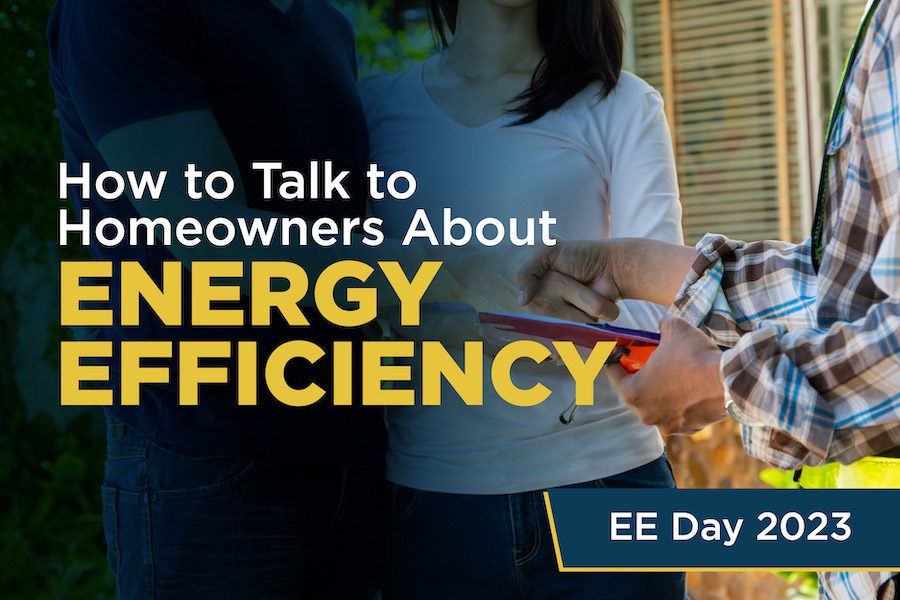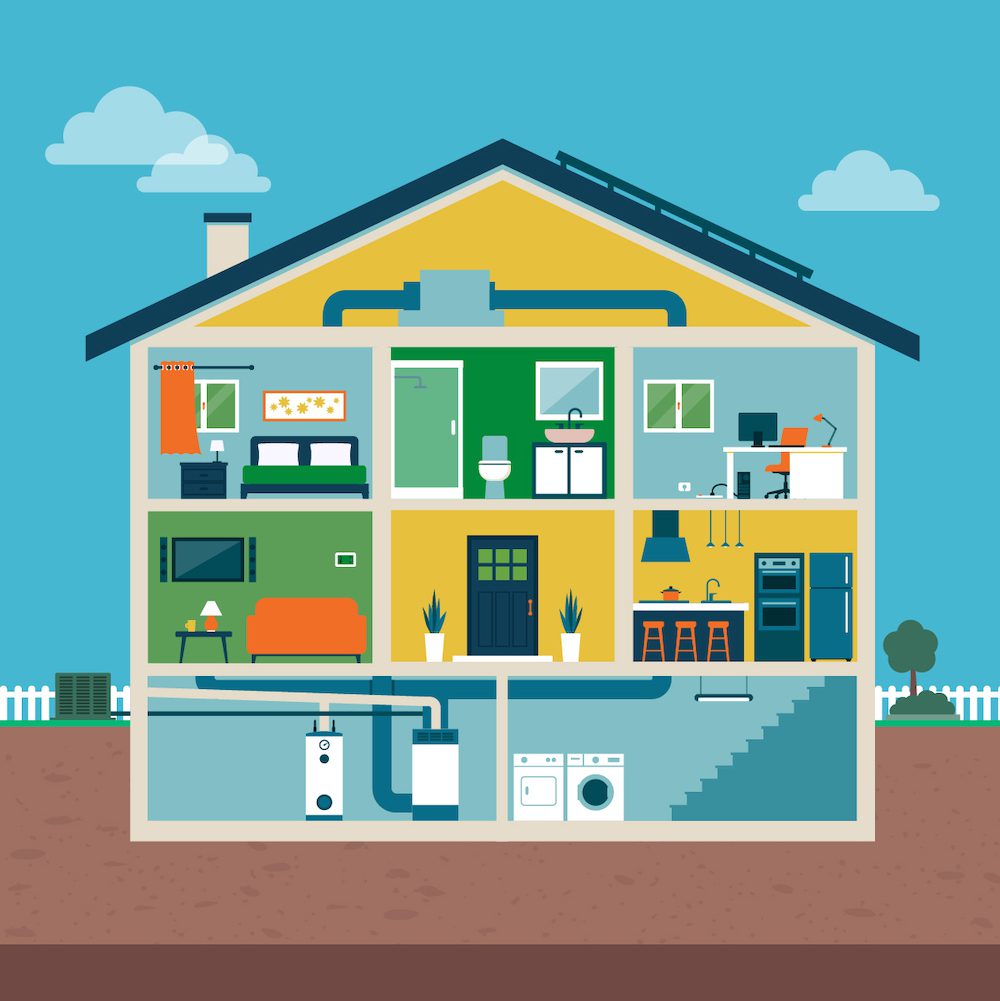
How to Talk to Homeowners About Energy Efficiency
October 4, 2023
It’s Energy Efficiency Day! Homeowners throughout the country are more aware of energy use in their homes today than ever before, but many don’t know what to do about it. They’re looking for a contractor that can meet them on their level and bridge the gap for them.
We’ve put together some ideas about how you can connect your services to the broader concept of energy efficiency. These can help take the confusion out of your marketing and in-home visits by helping your customers recognize the overall health, comfort, and safety benefits of an energy efficient home.
1. Give Them DIY Energy-Saving Tips
Many homeowners tend to think of small, do-it-yourself actions they can take to save energy, like turning the lights off when they leave a room. As a contractor, you can speak to these interests on your website by publishing blog articles and creating content about ways to save energy that anyone can do, like:
- Installing a programmable thermostat
- Setting your thermostat 7-10° back from its normal temperature
- Using smart power stripsSwitching to LED light bulbs
- Looking for ENERGY STAR-certified products
These DIY tips aren’t going to make you money directly, and that’s okay. You’re building up trust with the homeowner and establishing your values, which could lead to a sale down the line. But you can also take the opportunity to educate customers about steps they can take that will have a more significant impact on their home’s energy use—steps that likely include your services.
There’s a good article on the Energy Efficiency Day website that’s a prime example of this approach in action.
2. Know Your Incentives
Many homeowners would like to use less energy and be more environmentally friendly but feel like they can’t afford to. This presents a good opening for contractors to capitalize on rebates and incentives.
The Inflation Reduction Act is the latest incentive program designed to motivate homeowners to make energy efficiency improvements, but it’s not the only one. Many states, towns, and local utility companies have rebate programs currently in place. Knowing what is available in your area and sharing that information with your customers can not only help them maximize their savings, but it can help you gain their trust as well.
At the bare minimum, you should:
- Have a dedicated landing page on your website outlining different incentives in your area.
- Be educating homeowners during sales calls to make sure they are aware of the available savings.
Incentive programs are often layered with eligibility requirements that can easily go over the average homeowner’s head. By sharing your knowledge of these requirements and the process of claiming incentives, your customers will be more likely to recommend your services to their friends and neighbors.
3. Educate them on the Interconnected, Whole-House System
The building science industry understands that a home is a single system, with each component contributing to its overall performance. However, this concept is difficult to grasp for anyone without the necessary training and experience.

Explaining the concept of interconnected home energy use to your customers can help them recognize the value of your services and gain a better understanding of how much energy they use (as well as how much they could be saving) in their homes.
When talking with homeowners about the importance of energy efficiency, it’s also important to back your points up with data. This can include how much energy certain appliances within their home use and the savings involved with making performance upgrades—don’t forget to include the impact of your local climate, too!
There are several resources available to find statistics through the Department of Energy, the EPA, and ENERGY STAR (to only name a few). Here are some stats that we like to refer to often:
- Heating & cooling account for 55% of energy usage in the average household
- Indoor air can be 2 to 5 times more polluted than outdoor air
- 9 out of 10 homes in America are under-insulated
- Lighting makes up about 10% of a home’s energy costs
- Typical duct systems lose 25 to 40% of HVAC energy outputs
- ENERGY STAR-certified refrigerators use 15% less energy than conventional models
4. Don’t Get Too Technical
While talking to your customers about energy efficiency is important, there’s a fine line between education and getting deep into the home performance weeds. The building science industry involves complex ideas and we’ve found that the best way to communicate these concepts to homeowners is to simplify the process and avoid technical jargon.
From SEER ratings to BTUs and kWh, much of the terminology involved in energy efficiency is a mouthful and their definitions can be just as difficult for homeowners to grasp. Break these concepts down into something more palatable for your customers by cutting out the technical terms when possible or using clear explanations.
5. Focus on the Comfort, Financial and Health Benefits
We all know that energy efficiency is good for the environment, creates jobs, and has numerous other benefits. But when talking to homeowners about upgrades, make sure they understand that they aren’t just upgrading so they can save the planet and pat themselves on the back. In many instances, energy efficiency upgrades come with plenty of other benefits, including lower heating and cooling costs and a more comfortable and healthy home.
You can also take steps to show homeowners that these benefits aren’t just hypothetical. Utilizing case studies from previous jobs and quantifying a project’s success with before and after energy assessments adds value to your services. When your customers see the tangible evidence that you’ve helped their neighbors become more energy efficient, they’ll be more likely to entrust upgrading their home to you.
Bethany Violette is a content writer for Energy Circle, a digital marketing company that specializes in helping home performance and energy efficiency contractors find the best ways to connect with homeowners. You can learn more about Energy Circle on their website.
